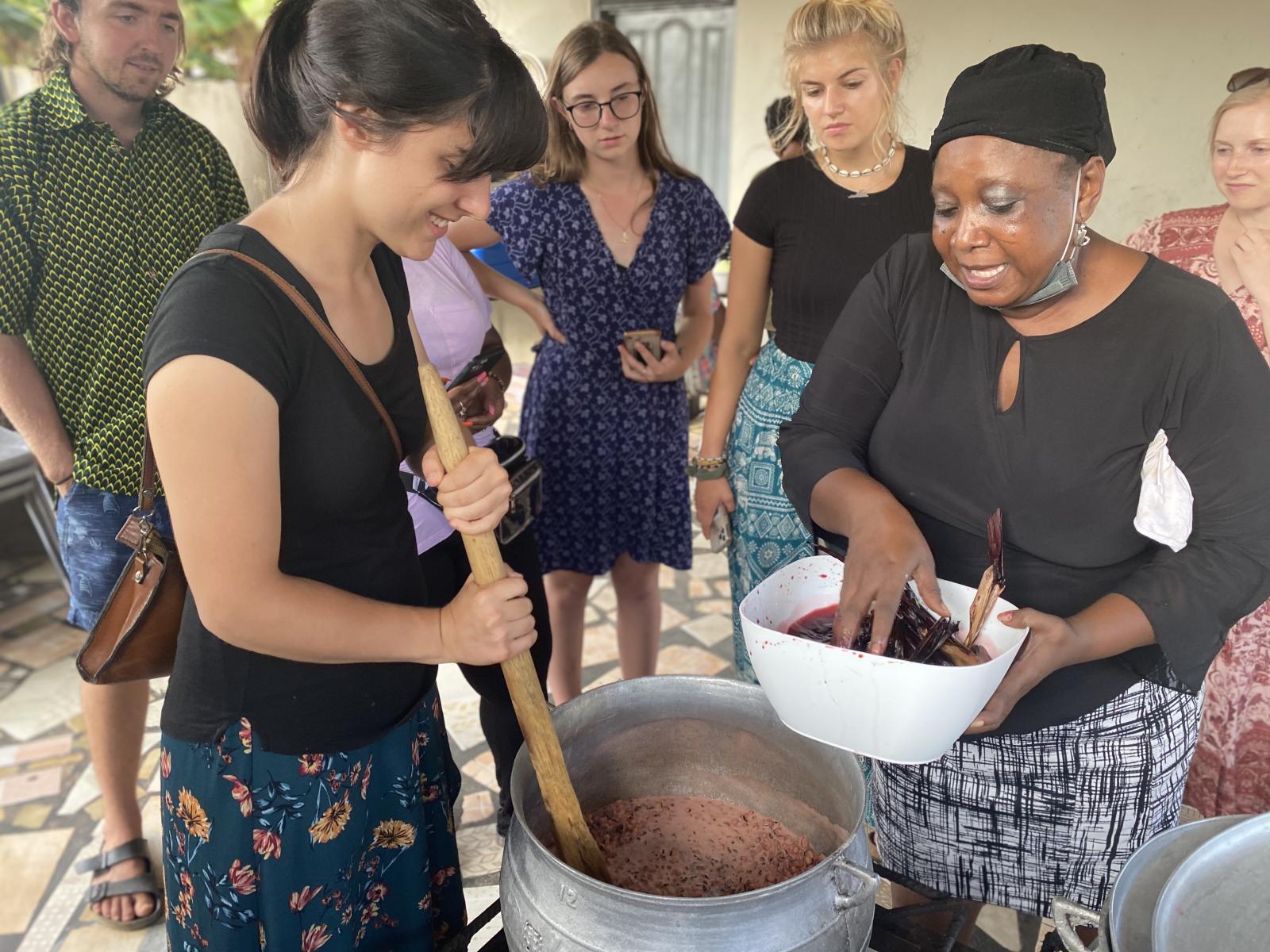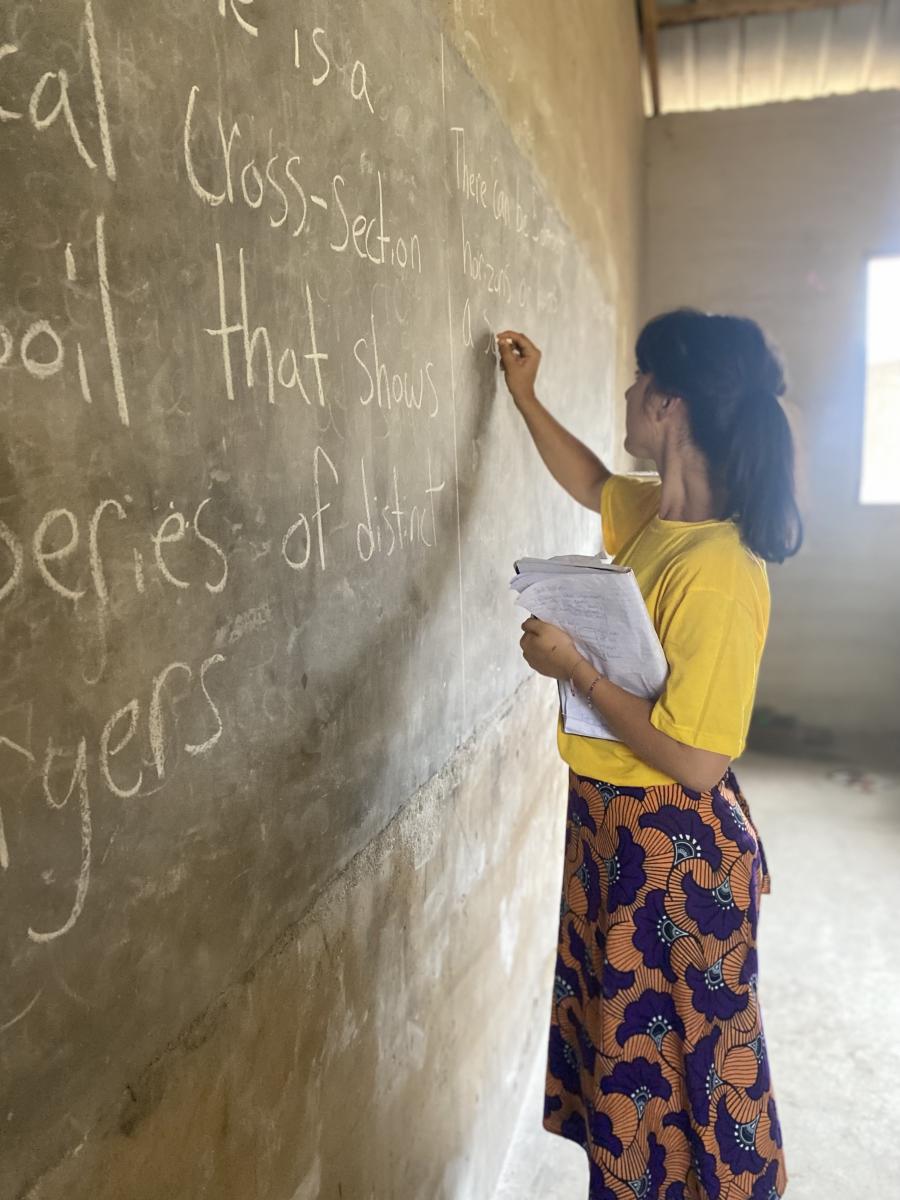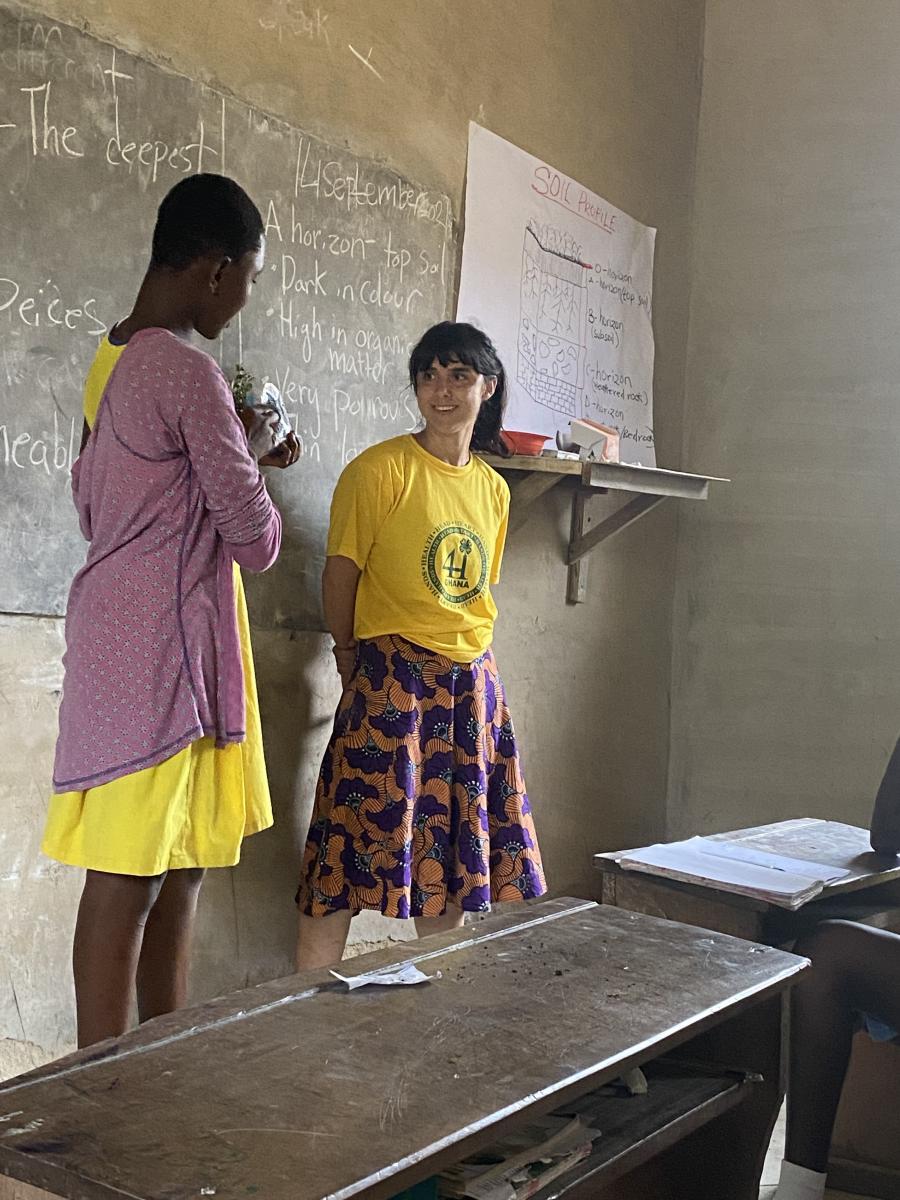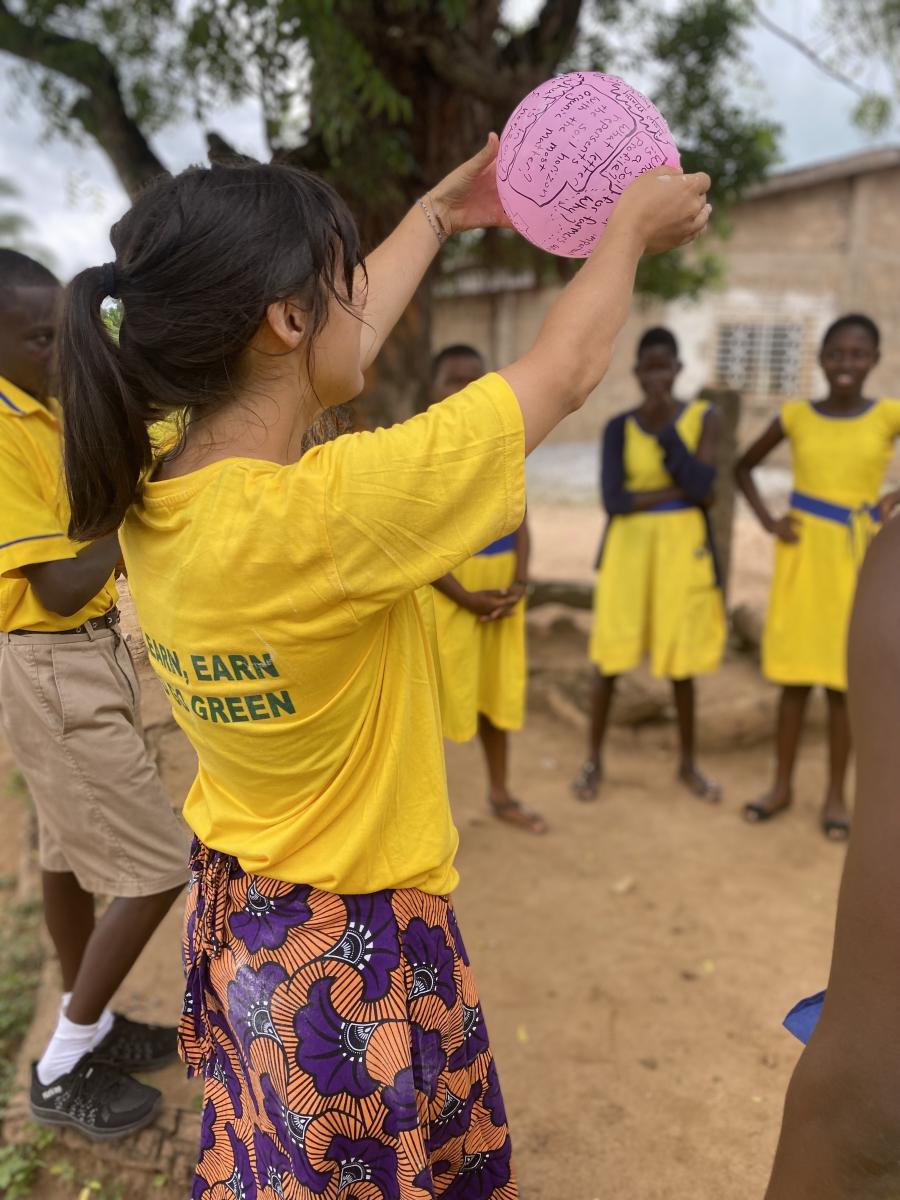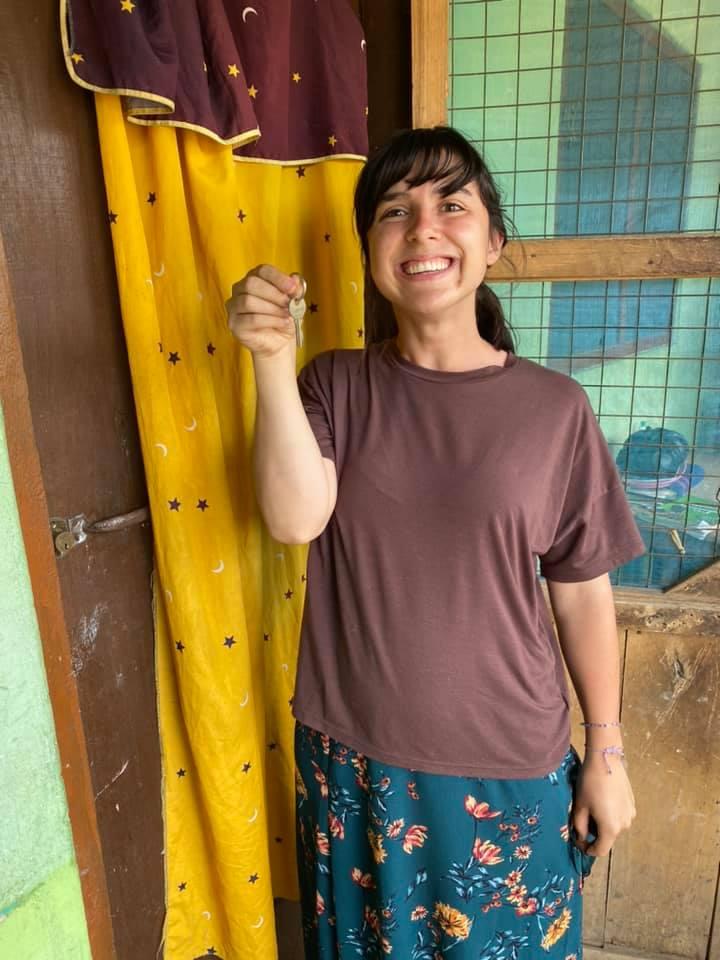
Meet Ella Scott

FAS: Why did you choose to pursue agriculture as your field of study?
Ella: I grew up on a pig and goat farm and was involved in 4-H and FFA, but I never really saw myself going into agriculture or teaching. Halfway through undergrad, I decided I wanted to be a science teacher. Then when I was in the Peace Corps in Sierra Leone, one of my favorite things to do was to go and work with my students on their farm. It was then that I discovered that ag education was a good way to combine both of my passions, ag and education.
FAS: What's something from your degree that you're excited to be applying in Ghana?
Ella: During my undergrad studies, I was able to explore my own curiosities. As a teacher here, I’m encouraging my students to follow their own interests. When they have a question about something, especially about the garden, I try to allow them opportunities to explore, experiment, and make discoveries.
FAS: As a fellow, what do you think is essential to an ag instructor's toolkit?
Ella: Flexibility. Every day I wake up with a plan of what I want to do, and it always turns out differently. The weather is unpredictable. The schedules are different, but everything ends up working out in the best way possible.
FAS: What inspires you in your role as a fellow?
Ella: My students inspire me. They are so smart, and they have good questions. I am starting a new 4-H club and a school garden with my partner teacher. The students have a lot of passion to make the best garden and the best 4-H club possible. [The other] fellows also inspire me. We have different experiences, and we collaborate a lot to exchange ideas.
FAS: What would you like for people to remember about teachers?
Ella: I was a teacher in the United States before I came to Ghana. All teachers care deeply about their students and see them as the future. It is a hard job, but teachers are very passionate about their work.
FAS: Tell us about one of your activities or lessons in the fellowship program.
Ella: I am teaching about sexual reproduction in plants this week. We're doing a dissection of a local flower. I am excited because it's a flower [that] students see every day, but we will take a closer look at it to see how it contributes to agriculture. Plant reproduction is part of the integrated science curriculum and I’m excited to be bringing a hands-on component to the lesson. Understanding the life cycle of plants is essential to agriculture and being a farmer.
FAS: What have you appreciated about your time in the fellowship program that you want to bring back to your ag peers in the United States?
Ella: I’ve enjoyed learning about agriculture in Ghana because it is so diverse. There are so many different crops being grown everywhere. Each community does things in a slightly different way. I’ve also appreciated how a lot of people contribute to their local farms. My students work on farms most weekends. These are not necessarily farms that belong to their immediate family, but more extended family. It's a community-driven enterprise and a lot of people pitch in.
Photo Highlights: Ella Scott
